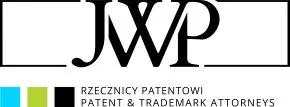Just enter the word COVID in the search engine to get over 6 billion results. The name of acute infectious respiratory disease caused by a new type of coronavirus appears everywhere, in daily conversations, medical reports, media, and scientific studies. This word has dominated the public space. In the world of intellectual property, we also can see "COVID" in the context of fighting the epidemics. And it turns out that patent offices worldwide receive applications for trademarks containing the word COVID. But can the COVID trademark be registered?
The answer is not at all obvious. First of all, it should be underlined that the basic function of a trademark is to indicate the origin of the goods or services. The customer should be able to distinguish between products of the same type coming from different producers by trademark. Meanwhile, the term COVID, or COVID-19, is not a generic name, but an abbreviation of the English term Coronavirus Disease 2019, which entered the daily speech to describe an infectious disease spreading around the world.
In my opinion, it is therefore unlikely that the word "COVID" can be protected as a trademark, especially for drugs or for medical services related to combating the coronavirus and the disease it causes. For these goods and services, such a trademark would probably be considered descriptive, and as such, lacking of distinctive character. A medicine labeled with the word COVID would indicate what disease it is intended to fight. The current regulations do not allow the registration of trademarks of a descriptive nature (e.g. milk, toothpaste), as this would lead to monopolization of the word to which all participants of the trade should have free access. It seems also unlikely to obtain registration of the ANTI-COVID trademark for products or services related to combating the epidemic. The addition of a prefix to inform that a given good or service is anti-virus does not change the descriptive nature of this sign.
We must also remember that the trademark should not be misleading.
Does any trademark containing the word COVID or ANTY-COVID have a chance of registration? The databases of patent office show that trademark applications include word and figurative marks containing the word COVID and a graphic element. Probably, applicants think that adding such an element to the word COVID improves the distinctiveness of the mark and eliminate the allegation of descriptiveness. Even if it will result in the registration of the trademark, will we be able to talk about success, in the meaning of obtaining a strong sign with good distinctiveness? From my perspective, as a patent attorney and many years consultant advising on the effective construction of an intellectual property portfolio, this is an illusion of success.
The scope of protection of such a mark will cover fanciful but not descriptive elements of the mark. What does this mean? The companies that have registered a word-figurative trademark with the word element COVID would be facing allegation form other entrepreneurs and it would be quite simple to demonstrate that the trademark registration protection does not cover the word COVID.
Well, is there no chance of successful registration of the COVID trademark or a mark containing that word?
So far, we have considered the possibility of registering such a mark for drugs, medical equipment, medical services, i.e. goods and services that are directly associated with a disease, treatment, pandemic, etc.
Beyond this sphere, there is a wide area of other goods and services. For all those who are not related to the world of medicine, research, and pandemic administration, it can be concluded that the COVID trademark would not be a descriptive sign. Concerning specific goods or services, one should consider whether there are any other conditions set by the provisions that would make it impossible to obtain registration of the COVID trademark.
I can think of someone registering the "COVID" trademark for vodka, or the "Mr. COVID" trademark for T-shirts. For each of these goods, such a word does not carry information about its features, so the objection of descriptiveness could be eliminated. However, one cannot lose sight of the fact that in the Polish legal system (and in many others), the office refuses to register a trademark for its contradiction to public order or morality.
While it cannot be said that the COVID trademark is illegal, but could its use for goods such as vodka or a T-shirt be considered immoral? This cannot be determined. COVID is undoubtedly associated with pain, suffering, and human tragedies. We do not know how Patent Offices will approach these aspects in the context of intellectual property protection. Is it in the field of good manners to label vodka with the COVID name? Probably the answer to such questions will come when Patent Offices' decisions are issued granting or denying protection to the trademarks containing word COVID.
In my opinion, it is much more important to get an answer to the question – why even submit such trademarks? What is the purpose of such registration?
While the intellectual property law gives protection to the trademarks as they identify products or services of a particular source, is it worth taking actions and bearing costs to obtain and maintain protection of the COVID trademark for liquors or clothing? The COVID label in such a context will be neither descriptive nor misleading, but, having in mind the strategic thinking, is the COVID vodka on the market a good idea? Will it gain a high position on the market, or will it be a dubious attraction of one season? The decision to file and register a trademark does not come down to filling out a simple form and paying a fee. It is an investment decision, often a vital one. Therefore, I believe that a well-prepared trademark application requires prior consideration of a business strategy and plans for the future, so that an IP specialist, a patent attorney, can comprehensively advise how and where to protect the trademark and how to build a valuable portfolio of intellectual property rights on its basis. Having many registered trademarks with low distinctiveness and negligible value is an example of a poorly chosen strategy. Many times in my work with entrepreneurs, I indicate that sometimes one mark, submitted and registered thoughtfully, is enough to become the company's greatest asset.
I share these thoughts because as a patent attorney and consultant I am wondering what the purpose of trademark applications with the word COVID element is. The pandemic will pass. Will these trademarks continue to be attractive in the future? Will anyone want to buy back those trademarks and mark their goods with them? Are they worth investing in? Or is it better to use a different strategy on intellectual property in your business? Our company, JWP Patent and Trademark Attorneys organizes many workshops and trainings for entrepreneurs and our partners from all over the world where we can discuss the above-described issues.
The content of this article is intended to provide a general guide to the subject matter. Specialist advice should be sought about your specific circumstances.

